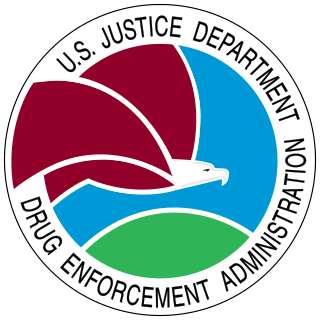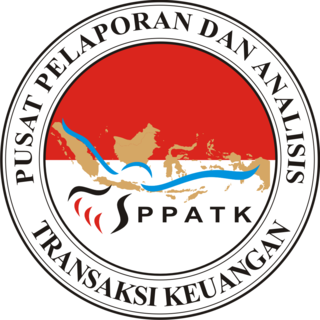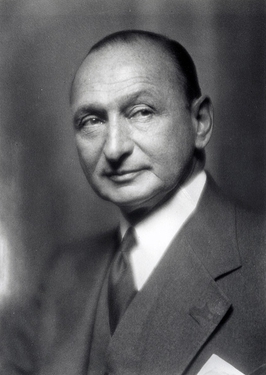
Fentanyl is a potent synthetic piperidine opioid primarily used as an analgesic. It is 20 to 40 times more potent than heroin and 100 times more potent than morphine; its primary clinical utility is in pain management for cancer patients and those recovering from painful surgeries. Fentanyl is also used as a sedative. Depending on the method of delivery, fentanyl can be very fast acting and ingesting a relatively small quantity can cause overdose. Fentanyl works by activating μ-opioid receptors. Fentanyl is sold under the brand names Actiq, Duragesic and Sublimaze, among others.

The Drug Enforcement Administration is a United States federal law enforcement agency under the U.S. Department of Justice tasked with combating illicit drug trafficking and distribution within the U.S. It is the lead agency for domestic enforcement of the Controlled Substances Act, sharing concurrent jurisdiction with the Federal Bureau of Investigation, the U.S. Immigration and Customs Enforcement, and U.S. Customs and Border Protection. However, the DEA has sole responsibility for coordinating and pursuing U.S. drug investigations both domestically and internationally.

Supervised injection sites (SIS) or Drug Consumption Rooms (DCRs) are a health and social response to drug-related problems. They are fixed or mobile spaces where people who use drugs are provided with sterile drug use equipment and can use illicit drugs under the supervision of trained staff. They are usually located in areas where there is an open drug scene and where injecting in public places is common. The primary target group for DCR services are people who engage in risky drug use.

McGruff the Crime Dog is an anthropomorphic animated bloodhound created by Dancer Fitzgerald Sample advertising executive Jack Keil through the Ad Council and later the National Crime Prevention Council to increase crime awareness and personal safety in the United States. McGruff costumes are used by police outreach efforts, often with children. McGruff was created in 1979 and debuted in 1980 with a series of public service announcements educating citizens on personal security measures, such as locking doors and putting lights on timers, in order to reduce crime. His name was selected as part of a nationwide contest in July 1980.

Cybercrime encompasses a wide range of criminal activities that are carried out using digital devices and/or networks. These crimes involve the use of technology to commit fraud, identity theft, data breaches, computer viruses, scams, and expanded upon in other malicious acts. Cybercriminals exploit vulnerabilities in computer systems and networks to gain unauthorized access, steal sensitive information, disrupt services, and cause financial or reputational harm to individuals, organizations, and governments.
The National Academy of Medicine (NAM), known as the Institute of Medicine (IoM) until 2015, is an American nonprofit, non-governmental organization. The National Academy of Medicine is a part of the National Academies of Sciences, Engineering, and Medicine, along with the National Academy of Sciences (NAS), National Academy of Engineering (NAE), and the National Research Council (NRC).

The regulation of therapeutic goods, defined as drugs and therapeutic devices, varies by jurisdiction. In some countries, such as the United States, they are regulated at the national level by a single agency. In other jurisdictions they are regulated at the state level, or at both state and national levels by various bodies, as in Australia.
Lacing or cutting, in drug culture, refer to the act of using a substance to adulterate substances independent of the reason. The resulting substance is laced or cut.

The National Agency for Food and Drug Administration and Control (NAFDAC) is a Nigerian federal agency under the Federal Ministry of Health that is responsible for regulating and controlling the manufacture, importation, exportation, advertisement, distribution, sale, and use of food, drugs, cosmetics, medical devices, chemicals, and packaged water.

Andrew Fois is an attorney who serves as the chair of the Administrative Conference of the United States since 2022. He served as the deputy attorney general for public safety in the Office of the Attorney General in Washington, D.C. from April 9, 2012, to March 2015. He was awarded the Edmund Randolph Award, the Justice Department's highest honor for distinguished service.

Food safety in China is a widespread concern for the country's agricultural industry. China's principal crops are rice, corn, wheat, soybeans, and cotton in addition to apples and other fruits and vegetables. China's principal livestock products include pork, beef, dairy, and eggs. The Chinese government oversees agricultural production as well as the manufacture of food packaging, containers, chemical additives, drug production, and business regulation. In recent years, the Chinese government attempted to consolidate food safety regulation with the creation of the State Food and Drug Administration of China in 2003; officials have also been under increasing public and international pressure to solve food safety problems. Chinese Vice Premier Li Keqiang said, "Food is essential, and safety should be a top priority. Food safety is closely related to people's lives and health and economic development and social harmony," at a State Council meeting in Beijing.
Gangs in Canada are mostly present in the major urban areas of Canada, although their activities are not confined to large cities.

The Sinaloa Cartel, also known as the Guzmán-Zambada Organization, the Federation, the Blood Alliance, or the Pacific Cartel, is a large, international organized crime syndicate based in the city of Culiacán, Sinaloa, that specializes in illegal drug trafficking and money laundering. It was established in Mexico during the late 1980s as one of a various number of subordinate "plazas" operating under a predecessor organization known as the Guadalajara Cartel. It is currently headed by Ismael Zambada García and is based in the city of Culiacán, Sinaloa, with operations in many world regions but primarily in the Mexican states of Sinaloa, Baja California, Durango, Sonora, and Chihuahua. and presence in a number of other regions in Latin America as well as in cities across the U.S. The United States Intelligence Community generally considers the Sinaloa Cartel to be the largest and most powerful drug trafficking organization in the world, making it perhaps even more influential and capable than Pablo Escobar's infamous Medellín Cartel of Colombia was during its prime. According to the National Drug Intelligence Center and other sources within the U.S. the Sinaloa Cartel is primarily involved in the distribution of cocaine, heroin, methamphetamine, fentanyl, cannabis and MDMA.

An opioid overdose is toxicity due to excessive consumption of opioids, such as morphine, codeine, heroin, fentanyl, tramadol, and methadone. This preventable pathology can be fatal if it leads to respiratory depression, a lethal condition that can cause hypoxia from slow and shallow breathing. Other symptoms include small pupils, and unconsciousness, however its onset can depend on the method of ingestion, the dosage and individual risk factors. Although there were over 110,000 deaths in 2017 due to opioids, individuals who survived also faced adverse complications, including permanent brain damage.
Counterfeit consumer goods—or counterfeit, fraudulent, and suspect items (CFSI)—are goods, often of inferior quality, made or sold under another's brand name without the brand owner's authorization. The colloquial terms knockoff or dupe (duplicate) are often used interchangeably with counterfeit, although their legal meanings are not identical.

In the United States, the opioid epidemic is an extensive, ongoing overuse of opioid medications, both from medical prescriptions and illegal sources. The epidemic began in the United States in the late 1990s, according to the Centers for Disease Control and Prevention (CDC), when opioids were increasingly prescribed for pain management, resulting in a rise in overall opioid use throughout subsequent years. The great majority of Americans who use prescription opioids do not believe that they are misusing them.

The Indonesian Financial Transaction Reports and Analysis Center or INTRAC or PPATK is a government agency of Indonesia responsible for financial intelligence. The agency was formed in 2002 to counter suspected money laundering and provide information on terrorist financing.

Carl Morris Loeb was a German-born American businessman who served as the president of the American Metal Company and the founder of Carl M. Loeb & Co, which became Loeb, Rhoades & Co. in 1938.

OnPoint NYC is a New York City nonprofit that operates two privately-run safe injection sites in East Harlem and Washington Heights. OnPoint refers to its sites as Overdose Prevention Centers (OPCs) rather than safe injection sites. Placed at the sites of existing syringe service programs, these were America's first safe injection facilities when they opened in November 2021. In their first year of operation, OnPoint's sites served over 2,100 clients and treated 672 overdoses, with no resulting deaths. The sites also offer medical care, drug checking, laundry facilities, showers, and other services. OnPoint also employs staff to collect discarded drug paraphernalia in parks and other public areas. In August 2023, top Federal prosecutor for Manhattan announced consumption site part of OnPoint's activity is unlawful.
















